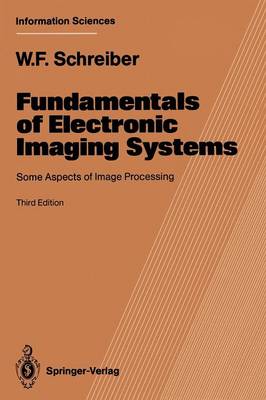Springer Series in Information Sciences
1 primary work
Book 15
Image processing is a fascinating applications area, not a fundamental science of sufficient generality to warrant studying it for its own sake. In this area, there are many opportunities to apply art and experience, as well as knowledge from a number of sciences and engineering disciplines, to the creation of products and processes for which society has an expressed need. Without this need, work in the field would be sterile, but with it, image processing can readily provide the interested scientist or engineer with a professioilal lifetime of challenging problems and corresponding rewards. This point of view motivates this book and has influenced the selection and treatment of topics. I have not attempted to 1 be encyclopedic; this service has already been performed by others. It will be noted that the word "digital" is not in the title of this book. While much of present-day image processing is implemented digitally, this work is not intended for those who think of image processing as a branch of digital signal processing, except, perhaps, to try to change their minds. Image gathering and image display, vital parts of the field with strong effects on image quality, are inherently analog, as are all of the channels and media now used, or likely to be used in the future, to record TV signals and to transmit them to the home.
